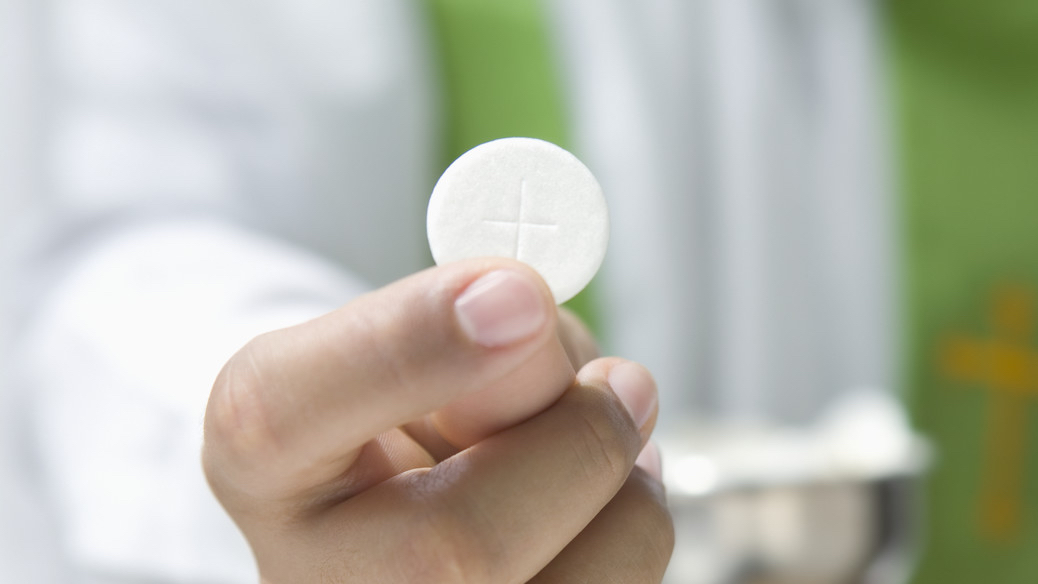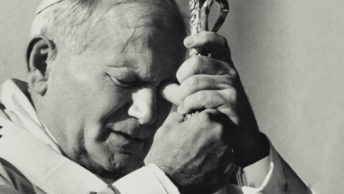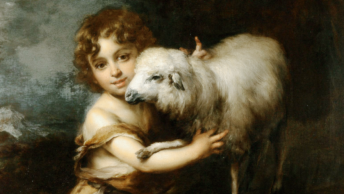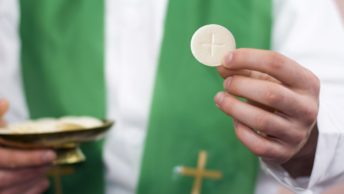Why do people travel long distances; endure discomforts and inconveniences just to be together as a family around the same table like on Thanksgiving Day or on Christmas Day? At times, a meal is much more than a meal; and also, a meal can turn a drab, boring day into fun, joy and togetherness.
Well, today, we shall consider how Jesus is very good at giving tremendous significance to a meal, like eating some baked fish in front of his disciples’ incredulous eyes after his resurrection; or, more to the point, his special meal, the Eucharist, in which he gives himself to us as food and drink for life eternal.
The Eucharist was originally referred to as “the breaking of bread.” And, as a meal, it was the way the two disciples of Emmaus could piece together their shattered lives and make the trip back to Jerusalem, at night, with wings on their feet.
Today, we want to dwell on the comforting fact that the Eucharist invigorates, refreshes, strengthens, exhilarates, restores and transforms us with unparalleled results.
In the case of the two disciples of Emmaus, the transformation was from disheartened, grieving, defeated individuals to people filled with energy, joy, resolve and readiness to endure all sorts of hardships for the Lord and for his Community of faith.
In the case of the eleven disciples locked inside the upper room, it was a transformation from roiling in remorse, shame, palpable fear, wondering about what would have happened to them next, to people to whom a new lease on life was given unexpectedly. A meal, a presence, a word of comfort, and the gift of his peace transform them into bold heralds of the most astonishing news ever, and into people ready to sacrifice everything, including their life, for the Lord and for his Body, the Church.
I know that even as I described these two transformations, your mind has gone already to the inevitable application of the same Eucharist and the same gift of peace to our life and to our personal situations.
In this context, we might identify with, basically, one of two groups of disciples. On the one side we find those who see the Eucharist as a very quaint spiritual gift offered every Sunday for which they feel the obligation to carve out an hour or so each week. For those in this group what is celebrated has little impact on what they are, and think, and do the rest of the week, at home, at work, anywhere else. It is an obligation they fulfill dutifully but, once done, they move on with their lives until the following Sunday.
Like everyone else, whenever they encounter problems and difficulties, they pray to God for favors to make their life smoother and less challenging. Hence, for them, God and religion are convenient and useful. Influenced by self-consciousness, both their concepts of God and of religion provide them with an effective way of presenting themselves as good, honest, pleasant people in social gatherings and in the workplace. However, at home, in letups of self-consciousness, they can be abusive, inconsiderate, manipulative, and selfish with those people closest to them. As the logical result of this dichotomy, they might not see the need for inconveniencing themselves to help someone in need, unless it is opportune. Nor would they be eager to bear witness to the truth of the Gospel at considerable personal cost.
Thankfully, there is another group: the group of those who realize that Jesus’ gift of peace at the Eucharistic meal is often insufficient to quell their inner turmoil, quests, longings and restlessness and to compensate for their readily-admitted inadequacies. They need more and more of it. They live with the disquieting thought that the new commandment given by Jesus to love each other as he loved them on the cross is so hard, practically impossible to live by, day in and day out.
Therefore, often, they resolve to explore the areas of their lives where there is evidence of inconsistency, of many shadows, a touch of hypocrisy, more than a hint of selfishness and aloofness. So, they gradually come to the realization that the only way to be genuine friends of Jesus is not by using him to get things to go their way, but by surrendering themselves totally to the Father’s will and design, no matter the personal cost involved. They embrace the sobering yet comforting fact that they cannot rely on anything good that they do, but only on the Lord’s infinite mercy. Eventually, like St. Paul, they learn to boast of their weaknesses and miseries (Cf. 2 Corinthians 12:9) because, it is the attitude that makes them long constantly for his peace, comforting words and his Meal; and they become totally receptive of his divine gifts.
From the presence of these two groups of disciples, we should conclude that the transformation that Jesus envisions for each one of us at our Eucharistic Celebrations, and which is designed to generate in us uncontainable joy is, down the centuries, the very same one which he offered the disciples of Emmaus and those huddled behind locked doors. It is born exclusively of a need that is constantly felt inside in a sincere and painful way—until it is met.
That need is met three ways: by the Sacrament of Reconciliation where Jesus speaks through the priest: (your sins are forgiven, go in peace); by the light of his Words that burn inside as a fire out of control whenever they are welcomed with total openness of heart; and by the breaking of bread, the Eucharist per se.
This, my friends, is what it means to be Catholic: God, physically getting close to us; we hearing his voice (go in peace, your sins are forgiven) touching us and transforming us with his peace; and his Words and the Bread of his Body broken for us.
That is cause for great, uncontainable joy for those among us who want to belong to the second group and are, thus, ready to show the Lord how much they love him with concrete facts after he has transformed them, once again, with this heavenly Meal.








